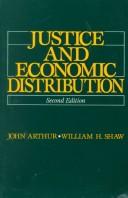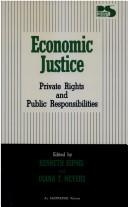| Listing 1 - 10 of 396 | << page >> |
Sort by
|
Book
ISBN: 1412351685 Year: 2006 Publisher: Chicoutimi : J.-M. Tremblay,
Abstract | Keywords | Export | Availability | Bookmark
 Loading...
Loading...Choose an application
- Reference Manager
- EndNote
- RefWorks (Direct export to RefWorks)

ISBN: 9780135142417 0135142415 Year: 1991 Publisher: Englewood Cliffs (N.J.): Prentice Hall,
Abstract | Keywords | Export | Availability | Bookmark
 Loading...
Loading...Choose an application
- Reference Manager
- EndNote
- RefWorks (Direct export to RefWorks)

ISBN: 0847673855 Year: 1985 Publisher: Totowa (N.J.) : Rowman and Allanheld,
Abstract | Keywords | Export | Availability | Bookmark
 Loading...
Loading...Choose an application
- Reference Manager
- EndNote
- RefWorks (Direct export to RefWorks)
Book
ISBN: 1000046737 1000046710 0429327137 Year: 2020 Publisher: New York, NY : Routledge,
Abstract | Keywords | Export | Availability | Bookmark
 Loading...
Loading...Choose an application
- Reference Manager
- EndNote
- RefWorks (Direct export to RefWorks)
This book develops a liberal theory of justice in exchange. It identifies the conditions that market exchanges need to fulfill to be just. It also addresses head-on a consequentialist challenge to existing theories of exchange, namely that, in light of new harms faced at the global level, we need to consider the combined consequences of millions of market exchanges to reach a final judgment about whether some individual exchange is just. The author argues that, even if we accept this challenge, the effect of it is minimal. For different reasons, normatively problematic collective market outcomes like externalities, monopolies, violations of the Lockean proviso, inequality, and commodification do not pose particular problems to the justice of market exchanges. He outlines the various conditions a market exchange needs to fulfill to be considered just from a liberal background and in light of the new harms. Ultimately, he shows, it is not the market which is to blame; if we want to tackle issues like global warming or global economic injustice, we should not blindly follow the intuition that we best restrain and regulate markets. Commutative Justice is unique in its focus on justice in exchange rather than on end-state distributive justice, and the way in which it addresses the new harms we are facing today. It will be of interest to researchers and advanced students in philosophy, politics, and economics who are working on questions of economic justice.
Book
ISBN: 1003099939 1003099939 1000206319 Year: 2021 Publisher: London ; New York, New York : Routledge,
Abstract | Keywords | Export | Availability | Bookmark
 Loading...
Loading...Choose an application
- Reference Manager
- EndNote
- RefWorks (Direct export to RefWorks)
"This book explores the relation between two key paradigms in the contemporary discourse on justice. Partly inspired by the debate between Nancy Fraser and Axel Honneth, it investigates whether the two paradigms, redistribution and recognition, are complementary, mutually exclusive, insufficient or essentially inadequate accounts of justice. Combining insights from the traditions of critical social theory and analytical political philosophy, the volume offers a multifaceted exploration of this incredibly inspiring conceptual couple from a plurality of perspectives. The chapters engage with concepts such as universal basic income, property-owning democracy, poverty, equality, self-respect, pluralism, care, and work, all of which have an impact on citizens' recognition as well as on distributive policies. An important contribution to the field of political and social philosophy, the volume will be useful to scholars and researchers of politics, law, human rights, economics, social justice, as well as policymakers"--
Book
ISBN: 1000030237 0429318782 Year: 2020 Publisher: New York : Routledge,
Abstract | Keywords | Export | Availability | Bookmark
 Loading...
Loading...Choose an application
- Reference Manager
- EndNote
- RefWorks (Direct export to RefWorks)
"How should we design our economic systems? Should we tax the rich at a higher rate than the poor? Should we have a minimum wage? Should the state provide healthcare for all? These and many related questions are the subject of distributive justice, and different theories of distributive justice provide different ways to think about and answer such questions. This book provides a thorough introduction to the main theories of distributive justice and reveals the underlying sources of our disagreements about economic policy. It argues that the universe of theories of distributive justice is surprisingly simple, yet complicated. It is simple in that the main theories of distributive justice are just four in number, and in that these theories each offer a distinct, well defined theoretical approach to distributive justice; yet they are complicated in that the main theories disagree at several distinct, fundamental levels, and in that it is possible to spin innumerable new theories from the elements of the four main theories. Key Features: Covers the four major theories of distributive justice and their leading philosophers, elucidating the attractions and drawbacks of each: o F.A. Hayek and right-liberalism o John Rawls and left-liberalism. Robert Nozick and libertarianism o G.A. Cohen and socialism. Explains why these four theories have come to dominate most philosophical discussions on distributive justice, highlighting the essential answer provided in each that is lacking in other theories. Written for any reader coming up to the topic for the first time, with an annotated reading list at the end of each chapter and helpful glossary at the back of the book"--
Book
ISBN: 9780191756733 9780199645121 Year: 2018 Publisher: Oxford Oxford University Press
Abstract | Keywords | Export | Availability | Bookmark
 Loading...
Loading...Choose an application
- Reference Manager
- EndNote
- RefWorks (Direct export to RefWorks)
This volume collects previously unpublished work on distributive justice written by leading political philosophers. Its aim is to provide a wide-ranging overview of the central contemporary debates—some more familiar than others—concerning distributive justice. The volume opens with an introduction and its thirty-two chapters are divided into four parts. The chapters of Part I introduce readers to the main contemporary approaches to distributive justice; those of Part II discuss the relation between distributive justice and some other social virtues; and those of Part III address some central foundational issues that affect our thinking about justice. Finally, the chapters of Part IV examine the implications of distributive justice for some key aspects of social life.
Book
Abstract | Keywords | Export | Availability | Bookmark
 Loading...
Loading...Choose an application
- Reference Manager
- EndNote
- RefWorks (Direct export to RefWorks)
Book
Year: 1997 Publisher: Armonk, N. Y. ; London M. E. Sharpe
Abstract | Keywords | Export | Availability | Bookmark
 Loading...
Loading...Choose an application
- Reference Manager
- EndNote
- RefWorks (Direct export to RefWorks)
Book
ISBN: 1805110829 1805110802 Year: 2024 Publisher: Cambridge, UK : Open Book Publishers,
Abstract | Keywords | Export | Availability | Bookmark
 Loading...
Loading...Choose an application
- Reference Manager
- EndNote
- RefWorks (Direct export to RefWorks)
'Tener demasiado' es el primer volumen acade´mico dedicado al limitarismo: la idea de que el uso de los recursos econo´micos o de los ecosistemas no sobrepasen ciertos li´mites. Se trata de un concepto profundamente arraigado en el pensamiento econo´mico y poli´tico, por lo que es posible encontrar premisas similares en pensadores como Plato´n, Aquino o Spinoza. No obstante, 'Tener demasiado' es el primer ejemplar en el campo de la filosofi´a poli´tica contempora´nea en el que el limitarismo se explora en profundidad y con detalle. Asimismo, este estudio reu´ne por primera vez los mejores escritos de los principales teo´ricos del limitarismo, lo que le convierte en una contribucio´n esencial al campo de la filosofi´a poli´tica, en general, y de las teori´as sobre la justicia distributiva, en particular. Incluye tanto arti´culos seminales ya publicados como nuevos capi´tulos y se presenta como lectura indispensable para acade´micos y estudiantes de teori´a poli´tica y filosofi´a, asi´ como para todos aquellos interesados en cuestiones relacionadas con la justicia distributiva.
| Listing 1 - 10 of 396 | << page >> |
Sort by
|

 Search
Search Feedback
Feedback About UniCat
About UniCat  Help
Help News
News